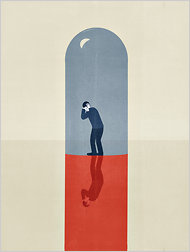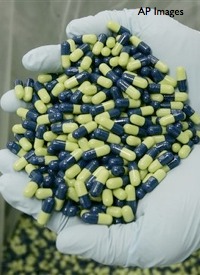
Antipschotic Drugs—Side Effects May Include Lawsuits
FOR decades, antipsychotic drugs were a niche product. Today, they’re the top-selling class of pharmaceuticals in America, generating annual revenue of about $14.6 billion and surpassing sales of even blockbusters like heart-protective statins. Lawyers suing AstraZeneca say documents they have unearthed show that the company tried to hide the risks of diabetes and weight gain associated with the new drugs. Positive studies were hyped, the documents show; negative ones were filed away. According to company e-mails unsealed in civil lawsuits, AstraZeneca “buried” — a manager’s term — a 1997 study showing that users of Seroquel, then a new antipsychotic, gained 11 pounds a year, while the company publicized a study that asserted they lost weight. Company e-mail messages also refer to doing a “great smoke-and-mirrors job” on an unfavorable study.


